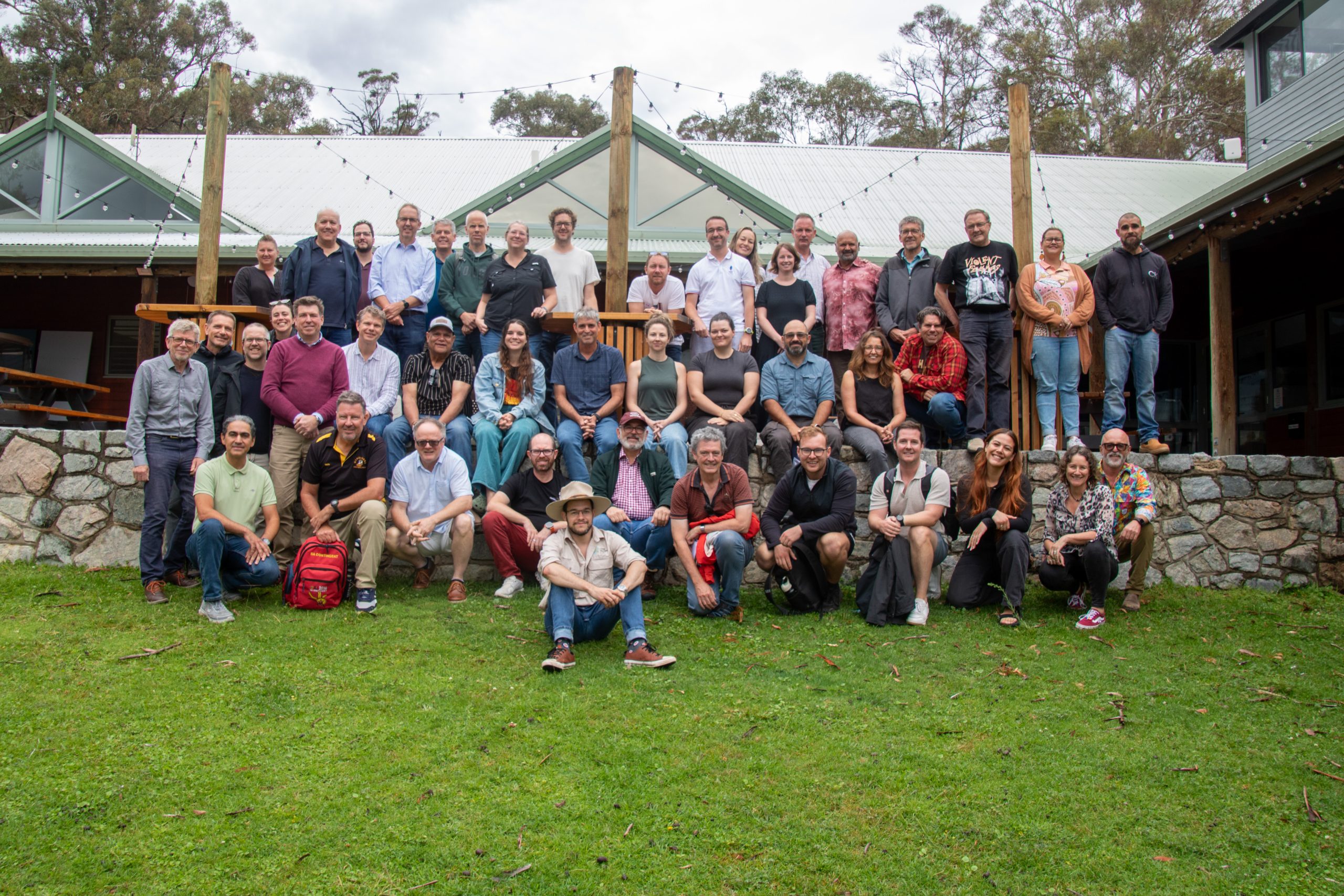“Building something powerful”: how One Basin’s first leadership camp and an action-learning program are cementing a platform for lasting change
news
Published 03 Apr 2025
Written by Ralph Johnstone
It’s not often that a leadership training program takes you back to your childhood. But that was the stirring experience that awaited Dr Tim Weaver, senior lecturer at the University of Sydney’s Narrabri campus, when he travelled 800km due south for One Basin CRC’s inaugural leadership camp deep in the Snowy Mountains.
It was never going to be conventional, but getting together 40 researchers, irrigators, community elders, and government delegates at a retreat near Jindabyne for six days in February proved an exceptionally personal experience – and one that delivered an abundance of unexpected outcomes.
“You tell most academics that you’re going to confine them to a bush-camp for a week, it’s enough to send shivers down their spines,” laughs Tim, who’s the academic lead for the University of Sydney’s partnership with One Basin CRC. “But that’s what we did, and the conversations didn’t stop from dawn till dusk – and into the night as we lay chatting in our bunks.”
There were conversations about wicked problems confronting One Basin’s projects in the basin, about environmental water releases, citizen science, groundwater desalination, and irrigating crops at night. And there were the personal conversations – the ones that rocked Tim’s world – about the kinds of people who make good leaders, and why that is.
“I was talking to one of our First Nations facilitators about two Indigenous sisters who my parents fostered when I was little,” says Tim. “I haven’t been in touch with them for some years – they were much older than me – but when I got home, I rang my Aunty Gloria, my dad’s sister, who’s good friends with one of the sisters, and now we’re back in touch.”
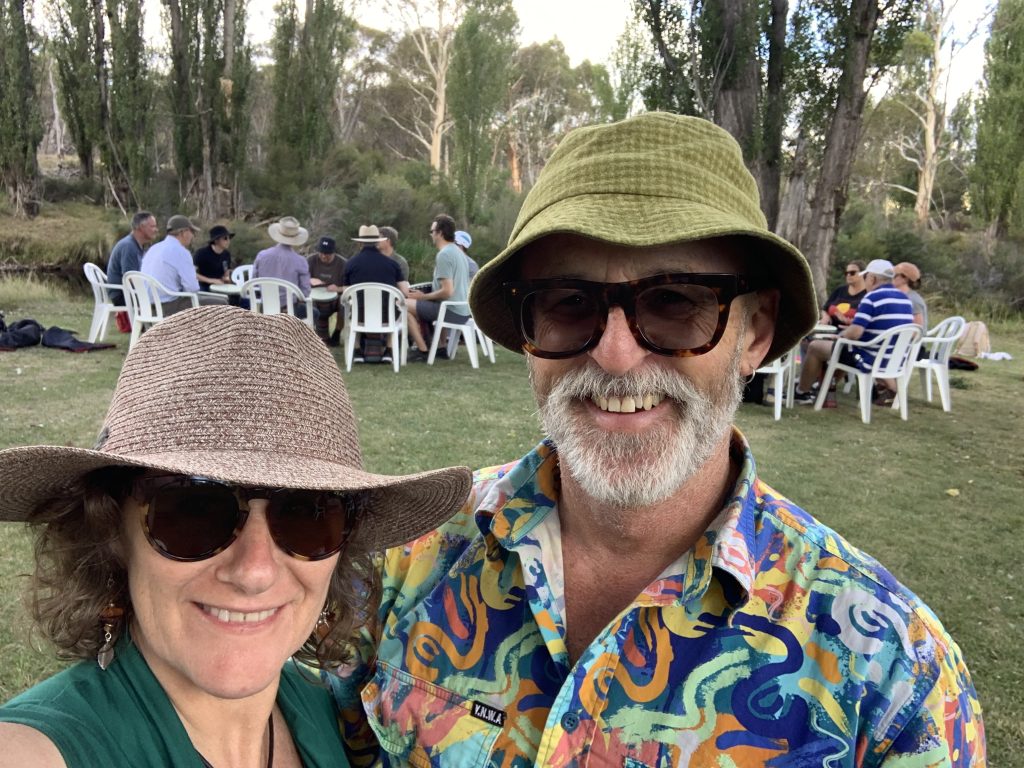
Professional development is always linked inextricably to personal history, according to Liz McCoy, whose company, curious&curious, designed and delivered the Jindabyne retreat, and who over the past nine months has helped One Basin CRC and its partners build a leadership framework to guide its project teams to become better leaders, better suited to tackling the complex challenges they face.
“Making a good leader is not just about role-playing and problem-solving – it’s about personal reflection, being open to other people’s opinions, and being prepared to change your own beliefs,” says Liz. “People who do research generally don’t like taking a lot of risks, whereas innovation and change are all about risk.”
“I’m inspired by the passion and commitment the CRC team exhibits in promoting the health of the Basin. Our waterways are sick and in need, and we have to do everything in our power to care for them…These leaders are our future – they have some of the most important jobs in the country.”
– Liz McCoy, co-founder of curious&curious and One Basin CRC facilitator.
Sharing the journey
One Basin’s Leadership Development Compass identifies a range of different leadership styles and the competencies and attitudes that are central to them. Participants who sign up to the training – more than 30 have already – will be allocated a mentor with whom to share their journey, confide their fears and challenges, and undertake a ‘360° survey’, comprising a self-assessment of their leadership qualities and feedback from colleagues. These assessments will provide the basis for a personal compass, identifying areas in which they might benefit from improvements in their self-leadership qualities (reflection, adaptability, humility), leadership of others (courage, openness, empathy), of impact (strategic thinking, future focus), and of projects (empowerment, collaboration, accountability).
From the competencies highlighted by their compass, the participants and their mentors will develop a ‘personal leadership plan’ focusing on two or three key goals for the coming year. They will meet regularly, using a series of online tools and processes to track their progress on a journey to become their “best selves” – the reflective, empathetic, risk-taking leaders that the basin’s future requires.
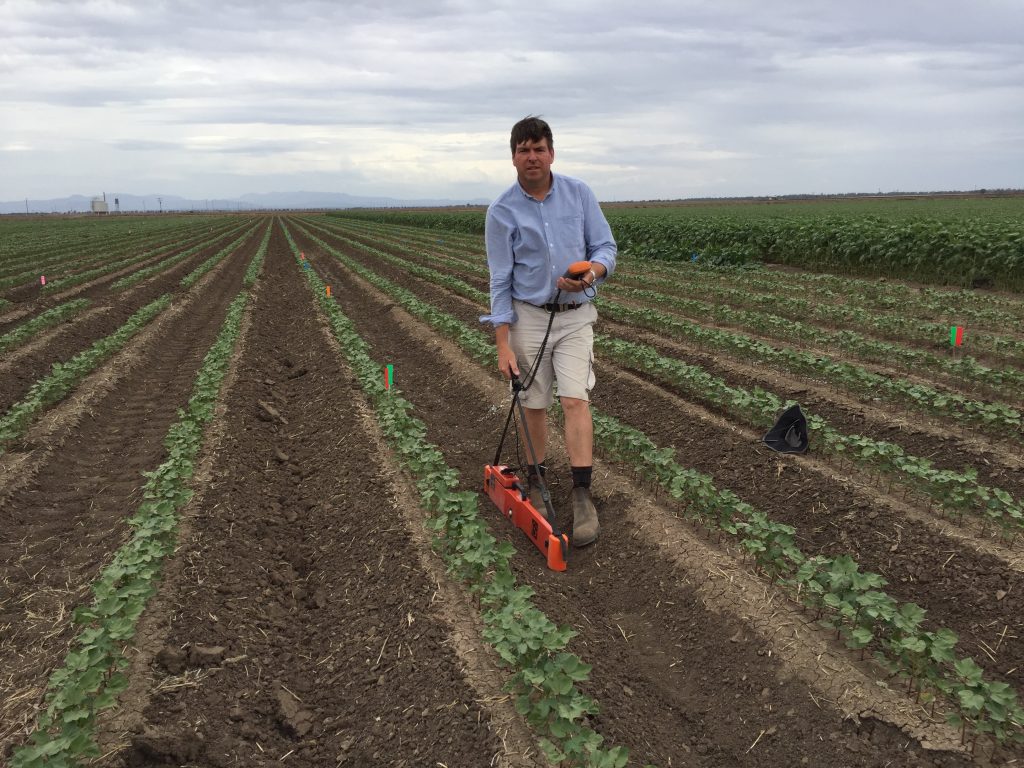
One Basin CRC, meanwhile, will develop a cohort of trained mentors and a series of online modules addressing those competencies most often selected by the participants – which will become the core of a program of self-directed learning available to all leaders across the partnership.
“The idea is to help each participant identify which priority they want to pursue – whether it’s building new relationships, empowering their team, improving their communication style,” explains Liz McCoy. “With the nature of their work, most of these leaders have a natural preference for being in the detail and playing small – but the type of leadership many of their projects require is more that of courageous risk-takers who employ masterful language and inspire people to action.”
“When you share your personal stories, you make yourself vulnerable – but you also make yourself more open to change.”
– Tim Weaver, Senior Lecturer in Farming Systems Agronomy, University of Sydney.
Camp camaraderie
The palpable buzz at Jindabyne did not just stem from the participants’ desire to be there, to learn more about themselves or improve their project outcomes. For Teresa Cochrane, a young Dunghutti Gumbaynggirr ecologist studying a PhD in koala preservation at Charles Sturt University’s Gulbali Institute, it was a momentous occasion – one that gave her a new faith in the sincerity of basin leaders to deliver real, equitable change.
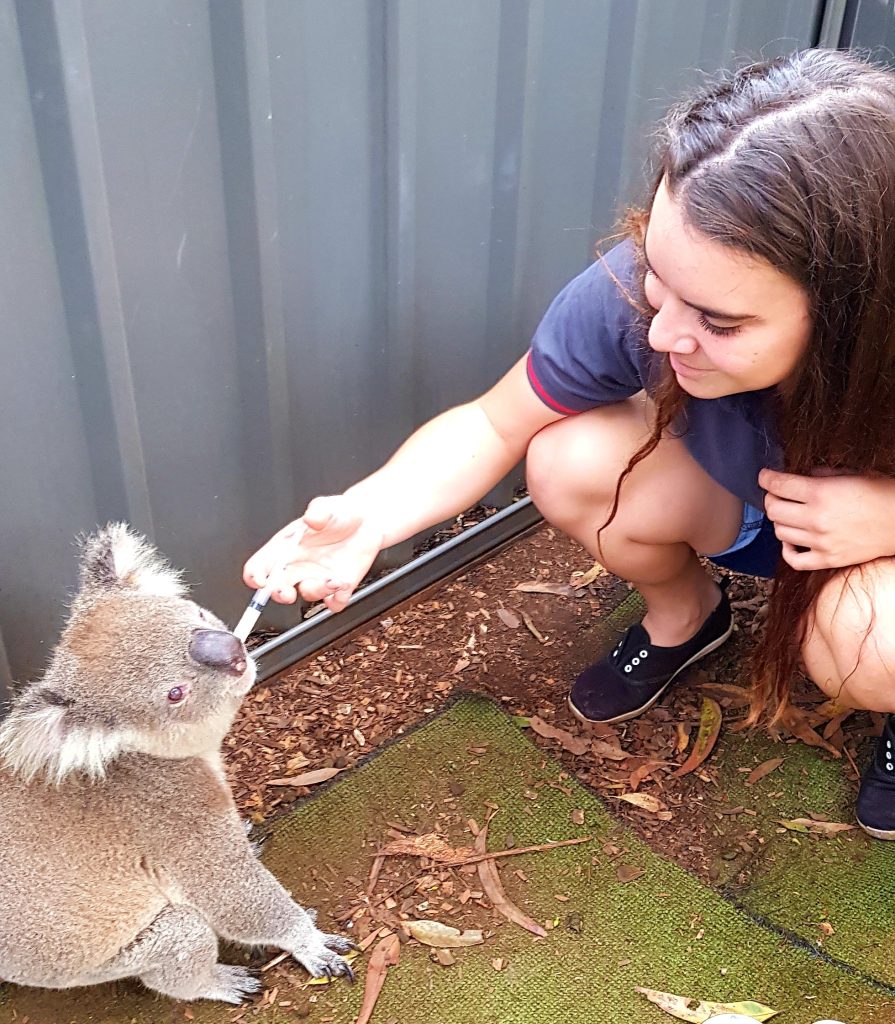
“Having these personal conversations with government and industry representatives, realising how closely aligned our goals are, and the fact that these guys really want First Nations leaders to be a part of these conversations – that gave me hope,” says Teresa, who was recently appointed student representative on One Basin’s First Nations Advisory Committee. “It wasn’t tokenistic; there was genuine understanding and engagement, and I think people will hold onto these conversations and think of them next time they’re out on Country.
“The camp was not focused at all on ‘how I view this differently to you’, but on finding common ground, discussing shared goals to conserve water and protect natural ecosystems. When you’re around people for a whole week, the hierarchies are removed, you can ask people what they’ve got out of something, what they really feel about a certain concept.”
“It was great to have the facilitators change up the ways we usually communicate, bringing it back to personal accountability and serious reflection of how we come together as a collective to develop relationships with communities,” says Tim Weaver. “For me, respect and consideration of First Nations perspectives was one of the principal outcomes of this camp. Participants were saying they didn’t realise the depth of connection between Country and the CRC, how much value is being put on First Nations connections and the need to seek First Nations guidance and approval for projects.
“That consultation needs to be there with communities regardless of a project’s orientation; we always need to go to the community where the work is being conducted and discuss its implications. The conversations during the week really underscored for me the sincerity of this group of people to do things right by First Nations communities in the planning of future projects.”
“With natural resources in Australia, it feels more important than ever to have people in the middle who can build bridges between different perspectives. You don’t have to agree with everything other people believe, but you do have to recognise that we share the same values and priorities when it comes to clean water.”
– Teresa Cochrane, First Nations researcher, Gulbali Institute, Charles Sturt University
The power of reflection
Myles Coker, another of the facilitators at the Jindabyne retreat, says good leadership can often start with something as simple as people reflecting on their challenges and concerns. “This was a key theme that emerged from the retreat: the need to create space for reflection – reflection which leads to insight, which leads to renewed energy for change.”
Myles is also facilitating a second arm of One Basin’s leadership program involving an ‘action learning’ pilot to help project teams dig deeper into their leadership challenges and opportunities. Since December, the Incentives and Investments and Stories of One Basin teams have both engaged in a series of meetings to drive deeper leadership discussions about their projects, considering their impacts on a broader range of stakeholders – and ways of engaging more openly and honestly with them.
For the Incentives and Investments team, the time with Myles has seen a new urgency in their mission. In just three months, the team has addressed several challenges in their methodology, fast-tracked a global literature review, and planned a series of co-design activities to engage farmers and communities in investigating new ways of funding sustainable irrigation and ecological work.
“It’s been really useful having a specialist facilitator coming into the team and observing how we interact, and advising us how we can ask better questions of each other,” says Dr Nick Pawsey, Associate Professor at Charles Sturt University and co-leader of the project. “We’d begun to build a strong rapport together, but it’s been great having a facilitator who brings new perspectives and ways of running our meetings… Myles has really helped us refine and validate our research approach, to consider better ways of reaching out and building relationships with different landholders.”
The Incentives and Investments team is looking at novel funding opportunities among investors, banks, and nature repair markets to support farmers and communities to promote sustainability across the basin. “Although these kinds of projects can provide great opportunities for meaningful collaboration, we recognise that there can be different opinions on the current trajectory within green finance and investment markets,” says Nick. “We need to have a lot of honest conversations with farmers and community leaders, as well as with banks, investors, and others who may want to invest in biodiversity markets and basin sustainability.”
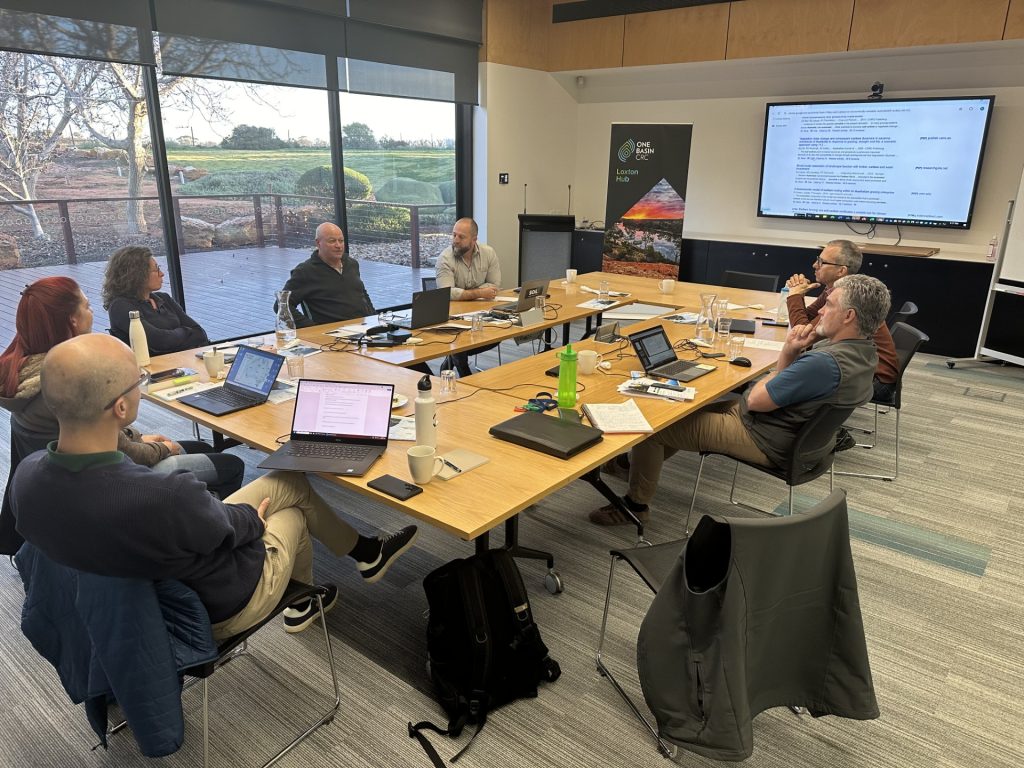
A different methodology
“These are conversations that could only take place in the kind of flexible ecosystem created by One Basin CRC, where there’s an openness to explore these kinds of reciprocal arrangements,” adds CSU School of Business lecturer Dr Nicola Thomas, a member of the project team. “I come from a world of briefs and timeframes and budgets, and there’s a totally different leadership methodology here that provides the freedom for us to think outside the box, and progress the kinds of conversations that are so vital to overcoming the toughest challenges facing the basin.”
For Myles Coker, this willingness to broaden the conversation owes just as much to the calibre of the teams and their willingness to engage in reflection and learning. “You have to be vulnerable to talk about leadership challenges, but the groundwork had already been laid in the formative stages of these teams to enable them to engage on a deeper personal and relational level,” says Myles. “High-performance research roles so often focus on data and rules and milestones, but what we’re here for is more about influence and impacts, taking time to think about the ‘butterfly effects’ of your work… The team captured it beautifully when they reflected that it’s not just about the research, but the relationships you build with people along the way.”
“With this group, I’ve been astounded by how well it’s been set up through the One Basin CRC approach to co-design. The level of trust, alignment and understanding between the team members is very high – and on that basis, what can be achieved together will be even stronger.”
– Myles Coker, Director, Innovation & Transformation, GHD.
Since December the team has held four action-learning sessions with Myles, which have seen them unpack what it really takes to engage meaningfully with farmers, irrigators, and Traditional Owners about alternative ways of funding land management projects and sustainable farming practices.
They have also accelerated a wide-ranging literature review of ‘green finance’ frameworks and policies tied to sustainable practices around the world – a task that fell to Dr Valeria Bellan, a behavioural scientist at the Australian Wine Research Institute. “There were 150 papers to review and analyse in detail, which was a huge task,” says Valeria. “But the commitment and support of the team enabled us to identify a post-doc researcher who I’ve now been able to share this work with.”
Like those who attended the Jindabyne event, Valeria says One Basin’s focus on creating cohesive teams has given its members the confidence to share any concerns that may arise in the course of their work. “Before this project got underway, the CRC and our team leaders arranged for us to meet in Loxton, which really set the scene for the progress we’ve made so far. Those long car journeys enabled us to connect, and having dinner together – it was really lovely. Meeting one on one is so important; we’re social creatures and that connection really changes everything.”
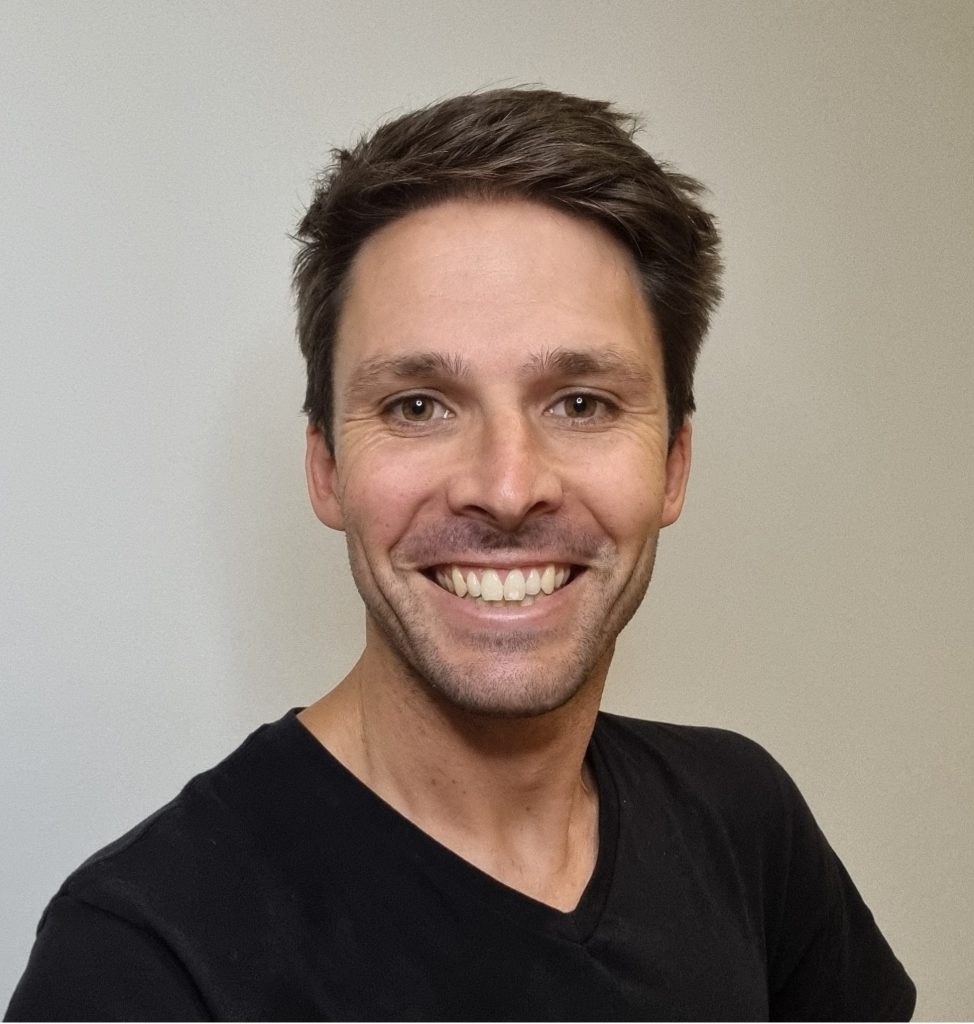
“A total contrast”
For Nicola Thomas, that sense of camaraderie and trust among a team who really respect each other can deliver positive outcomes – no matter how high the environmental, financial, or historical hurdles.
“I’ve done leadership training with consultants zooming in from different places, or brought together for a day – but they never really get to know each other,” says Nicola. “This is a total contrast. The investment by One Basin CRC in getting us together before the project, and again at the annual event, is really paying off.
“There’s a real commitment within this team; everyone’s really invested in it. Even designing a flyer for our first workshop – everyone had an opinion and wanted to contribute something, because everyone really wants it to succeed.”
For Myles Coker, like Tim Weaver, the Jindabyne event felt like an emotional turning point for many of the projects involved. “I think that week was deeply meaningful for a lot of people,” says Myles. “Something deep seemed to shift… I think there’s great potential for change in many of these relationships.
“There was already a strong platform for change, and I believe we can build something powerful on that. It’s very bold, to get a group of scientists and technical people to reflect on how they work together – it’s a massive departure from the status quo.”
“The One Basin CRC has enabled us to establish a strong interdisciplinary team and partnerships across industry and research organisations. The training has been influential in helping us strengthen these bonds.
I think it would be useful for every new team to have a chance to have these kinds of intimate meetings and the open, honest chats they engender.”
– Dr Nick Pawsey, co-lead, One Basin CRC Incentives and Investments project.
More information on some of the methodologies that are informing the basis for One Basin’s leadership development program:
Latest news & events
All news & eventsWebinar recording: Working With Country To Heal
Read MoreBuilding capacity for Basin communities to respond to variable water futures
Read MoreDelivering the Commonwealth Environmental Water Holder’s (CEWH) Flow-MER 2025 Annual Forum
Read MoreMurray Darling Association 2025 National Conference: Griffith drives Basin-wide water collaboration
Read More